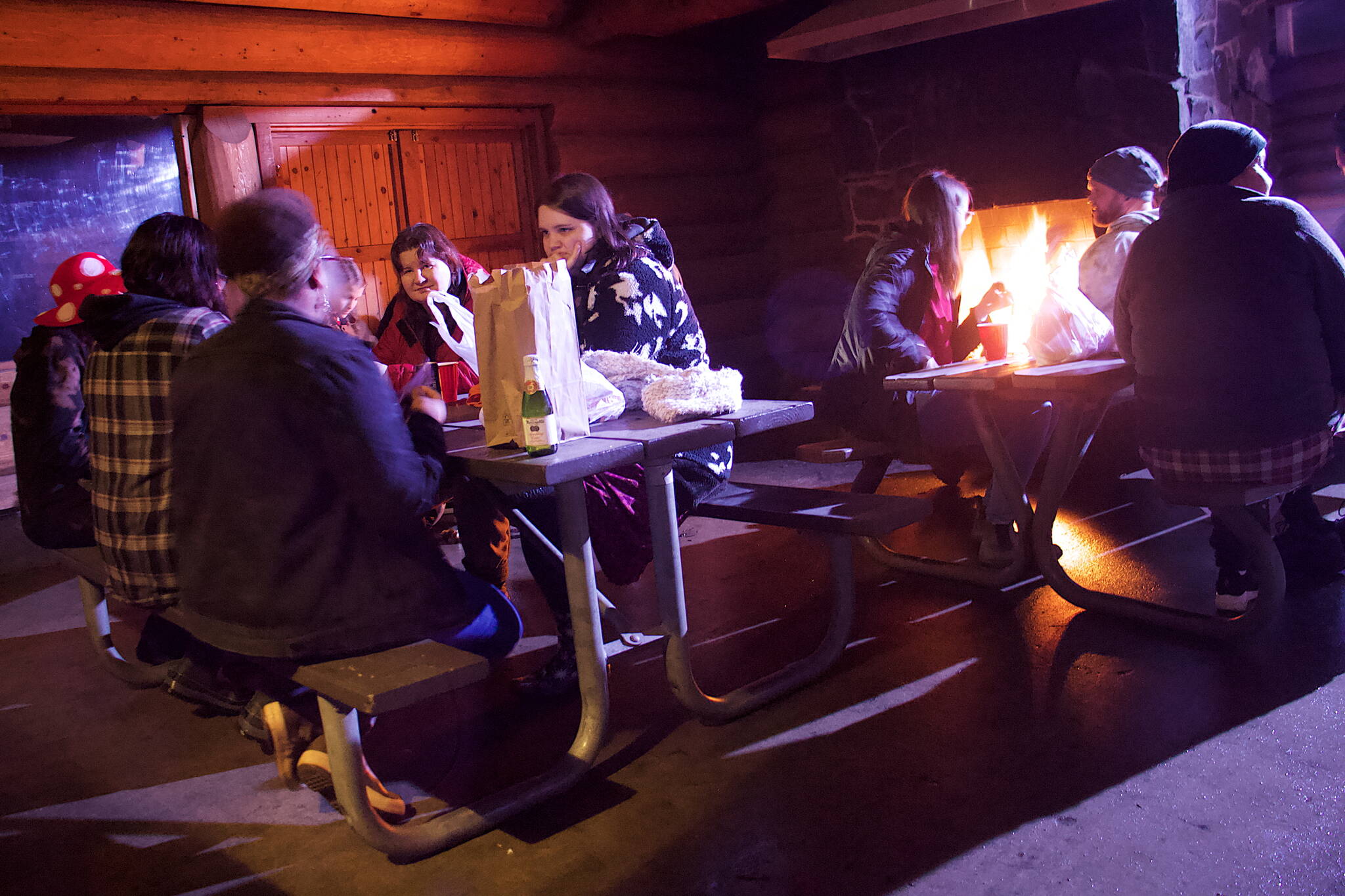Jenni Brett says she has plenty to be thankful for — she just doesn’t want to be celebrating it as part of Thanksgiving due to how the origins of it are commonly understood.
The fourth Thursday of November also has been known since 1970 among some Native Americans as the National Day of Mourning, aimed at dispelling inaccuracies about the classic story of Thanksgiving in the United States. Brett, a Juneau resident, doesn’t go that far, but did choose to spend the evening a short distance from her home at a newly organized communal Friendsgiving celebration at the log cabin at Savikko Park with her son Ian, 13.
“I don’t generally celebrate this day because my family is Native,” she said. “And I know what really happened. So I don’t celebrate. This a day of thank you, but I don’t make a big meal. We just eat whatever we like and watch movies or something.”
Such thinking is why a centerpiece dish of mango-habanero-pineapple ham was brought by Drew Hammond, who recently moved to Juneau from Hawaii and organized the event. He said he also organized numerous similar events in Hawaii, where many indigenous Polynesian people share a similar interpretation of the Thanksgiving holiday.
“That’s why I like Friendsgiving, where everyone can come together within the community,” he said.
For some at the gathering who do observe Thanksgiving, it was just a chance to get together on a day when there weren’t others to be with, and/or share food and other activities in the cabin.
Brett, a night auditor at a local hotel, said she has no hesitation about what she’s thankful for.
I’m thankful for my job and I’m grateful for my son for sure, that we have an amazing relationship, he’s amazing,” she said. “And I’m grateful for my therapist. And I’m grateful for my house, that we have food, that we have a car, that we have everything we need.”
The traditional narrative about “Indians” from the Mashpee Wampanoag Tribe being invited to share a feast with the Pilgrims in 1621 is inaccurate, according to modern historians. Rather, the Pilgrims were celebrating by firing muskets after their first harvest, which promoted the Wampanoag to consider it a threat and approach the settlement.
While there was a subsequent feast, the book “Of Plimoth Plantation” by Paula Peters, a member of the tribe, states the traditional narrative “further buries the truths of kidnappings, pestilence and subjugation and ignores the scant details of the tense encounter, while it conjures up Hallmark images of happy Natives and Pilgrims feasting on a cornucopia of corn, pies, and meats, including a fully dressed roast turkey.”
Brett said it appears there is a growing awareness of the myths associated with Thanksgiving.
“When I was in school they used to have Thanksgiving plays where there were kids with the Indians and Pilgrims and the paper hats,” she said. “They don’t do that anymore because people know.”
• Contact Mark Sabbatini at mark.sabbatini@juneauempire.com or (907) 957-2306.

